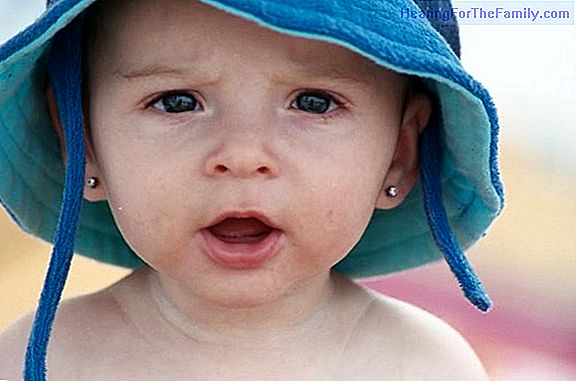Biting in the nursery, the bites of the babies and children
Biting in the nursery , from time to time, is part of the normal development of the child, but when the baby or the child does so persistently, it can be cause for concern, both for parents and educators. The bites of babies and children are very painful for the one who receives them and, in additio
Biting in the nursery, from time to time, is part of the normal development of the child, but when the baby or the child does so persistently, it can be cause for concern, both for parents and educators.
The bites of babies and children are very painful for the one who receives them and, in addition, can cause conflicts between the companions. Children, once they have suffered repeated assaults, tend to refuse the closeness of the child who bites and end up isolating them from the group. To end this type of behavior, the first step is to know why you are doing it.
Causes of bites from children and babies

Babies use their mouths to explore, to learn more about their world and to relate. They do not know the pain of others and they lack self-control: they act on impulses. As soon they bite because they are happy, because they want to know the objects or need to relieve the pain of their gums.
The case of children from 1 to 3 years old is different. At this age they have to be incorporated into life as a community, but they do not usually have the necessary language, nor have enough social skills to be able to communicate and be respected. Biting is a quick way to get a toy or to get attention. They also use this resource when they experience situations that cause them stress or frustration, such as, for example, an unknown environment, being hungry, the birth of a sibling or feeling attacked. Other children bite, simply, by imitation.
In the preschool age the bites stop being frequent. Sometimes they can resort to this weapon to control a situation, such as self-defense, to attract attention or by great frustration or anger. But if at this age, a child persistently bites, it may reflect emotional or behavioral problems, since he possesses sufficient skills to be able to express his needs and feelings without biting. It is possible that your behavior is a reflection of social relationship problems with other children you do not want to submit to, the result of excessive or severe discipline or a consequence of your experience as a witness or victim of acts of physical violence.
How to prevent children from biting their partners
Although the problem of biting is normal, we should not resign ourselves to 'suffer' them in the hope that they will disappear with time, because in many cases this is not the case. It is necessary to study which are the situations in which there is greater risk and we must try to anticipate to reduce the unwanted behaviors.
- If the child is getting teeth or is in an exploration phase, you must provide a variety of toys and things that can bite to calm down (teethers, cookies, cold carrots ...).
- If two children often fight for the same toy, we can buy more copies to play simultaneously.
- If you usually bite when you are hungry or tired, you can shorten the playing time so that you eat before you can rest.
- If he bites to get attention se, he should spend a little more time with him, but always doing a positive activity (reading a story, playing ball ...), never as a result of having bitten. It is necessary to avoid that the group of game gets bored, is nervous in excess or is too numerous. And, of course, be attentive and close enough to intervene quickly if necessary.

Virginia González
Psychologist
Early Childhood Teacher












